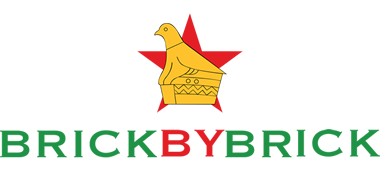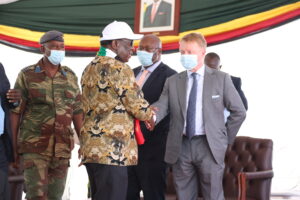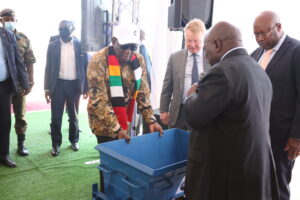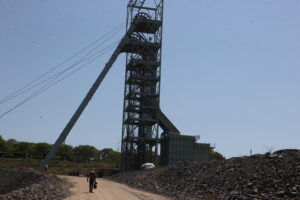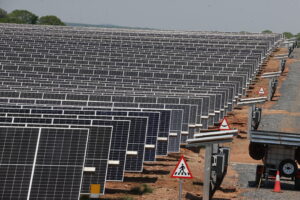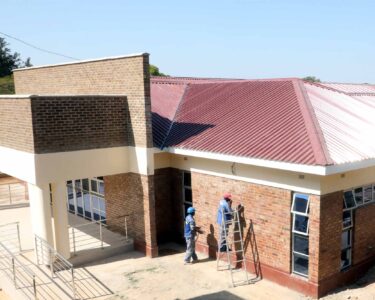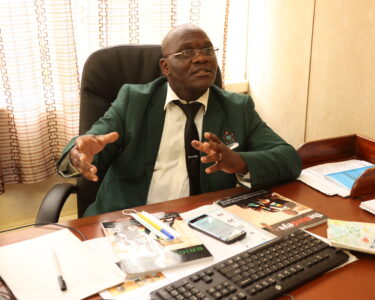On 18 November, 2022, President Mnangagwa officially commissioned the US$67 million new Central Shaft at Blanket Mine in Gwanda, Matabeleland South, as well as a 12.2-megawatt solar power plant built at a cost of US$14 million.
The massive investment by Blanket Mine, owned by Caledonia Mining Corporation, is clear testimony that Zimbabwe remains an attractive investment destination despite spirited efforts by its detractors to tarnish the country’s image. To add to the excitement, the Central Shaft was constructed by Zimbabwean engineers, a development that shows that the country has capable professionals who are walking the talk in turning President Mnangagwa’s mantra, nyika inovakwa nevene vayo/ilizwe lakhiwa ngabaninilo, into reality.
With investments into the mining sector continuing to pour into the country and the targeted US$12 billion mining economy by 2025 becoming a reality while Zimbabwean engineers are proving that they are as good as any in the world, President Mnangagwa was justifiably in an ecstatic and jocular mood as he delivered his keynote speech. Our Editor-in-Chief, Munyaradzi Huni, reports that, as the President delivered his speech, he spoke like a statesman really enjoying his presidency. And why not?
It all started with the Minister of Mines and Mining Development, Winston Chitando, who chose to introduce President Mnangagwa, as the guest of honour at Blanket Mine, in a short but very refreshing way. He said: “Our guest of honour is a man who participated in the liberation struggle at a very tender age. Our guest of honour recently celebrated his 80th birthday.
“Ladies and gentlemen, Zimbabwe is on a fast development path. Mutserendende wedevelopment (unstoppable development). If you look at all developed countries in the world, their development never happened by accident. There was a vision and there was a driver to turn that vision into reality.
“There are three things I would want to talk very briefly about our guest of honour. The first thing is he formulated the path to the development of Zimbabwe through Vision 2030. Clearly articulated. The second thing – he is driving that vision. Look at it from infrastructure development, look at it from agriculture development, look at it from tourism and closer to home look at it from mining. He formulated the vision and he is driving it.
“The third thing, and this is really exciting, is that his vision is irreversible. Zimbabwe is headed to become an Upper Middle Income Economy by 2030. Mutserendende we development and mutserendende hausi kumira (unstoppable development and we are not about to stop).”
Minister Chitando’s introductory remarks were short and to the point. Now, it was the President’s turn. Clearly, he was in a jovial mood and the guests lapped up each and every word he spoke.
President Mnangagwa opened his speech by thanking Caledonia Mine for investing in the country, which he said was testimony enough that, indeed, “Zimbabwe is open for business”.
From the onset, it was clear that the President does not simply recite his speeches. He cross-checks facts and even interrogates the content. As he was reading his speech, talking about new gold projections at Blanket Mine following the construction of the Central Shaft, the President said: “Blanket Mine is heading towards the realisation of the projected target of, 17 tonnes of gold by, I don’t think this is correct. They say here by 2023 but when I asked them, Mark said 2030.”
The President was referring to the Caledonia chief executive officer, Mark Learmonth.
He continued: “The expansion of the Central Shaft is one of the many successful projects that have been undertaken in this sector. I applaud Blanket Gold Mine for this investment of a total of approximately US$67 million which was undertaken through internal cash flows . . . This shows that Zimbabwe is a land for great opportunities for any investor.
“Target production will be boosted to 80 000 ounces of gold per annum. Ma ounces aya ndezvakare handichazivi kuti mazuvano zvorevei? If you say ounces kuvana vechikoro havazvizivi. Mark, this is old British English. (LAUGHTER). Now we call them, what do we call them by the way (PAUSE), grammes, yeah, grammes (MORE LAUGHTER). Anyway, they remain ounces here at Blanket Mine.”
The President went on to outline the phenomenal growth of the mining sector and how it was creating job opportunities for thousands in all the country’s 10 provinces. He commended Blanket Mine for building decent houses for its workers. “I was telling Mark. As we flew above this mine, I was impressed by the standard of housing Blanket Mine has built for its workers. With that background whatever you ask, I will be very positive,” he said to applause from the guests.
He was not yet done: “As government we have made a bold decision to ensure that every citizen of Zimbabwe benefits from our rich resource endowment now and into the future. Hence, from the first of October (2022) the collection of half of the royalties from gold, diamonds, lithium and platinum, among other precious stones and valuable metals, are being made in the form of physical stocks of the minerals.
“Kubva nyika ino taitora, kana patakaitora panga pasina izvozvo. Government imposed royalties on mining companies who extract gold, diamonds, lithium, platinum and so on and that royalty was being paid in US dollars. But once that money goes into the hands of [Minister of Finance and Economic Development] Professor [Mthuli] Ncube (he comes from here), it disappears (LAUGHTER FROM THE GUESTS). So from the first of October we changed.
“Instead of paying in monetary terms they are now paying in gold yatinovonavo so that we have so many reserves. If Professor Ncube wants to use that reserve, he can securitise the reserve. This policy will undoubtedly have ripple effects on currency stability . . .”
President Mnangagwa urged youths to study Science subjects saying: “The young boys who were singing here, I want you to study Science. Yes, you can study religion, but I want you to study Science. Science, Science and Science. Tomorrow’s world is based on science. It is based on technology. You can only pray after work.” The guests erupted into laughter again!
The President then turned the guns on himself.
“I am also happy that Blanket Mine has constructed a 12MW plant of green energy. Solar energy is the way to go. You see that clearance across there (pointing outside the tent), which we can see across there, of course I am a villager myself, when I saw that I thought ‘Ahh, very good, Blanket Mine is about to grow maize (LAUGHTER FROM GUESTS). I was told, ‘No, no mudhara, it’s for solar.” Many guests laughed their lungs out.
Even though it was clear that the President was in light-hearted mood, he did not hesitate to fire warning shots to some of his ministers: “Recently in Mberengwa we discovered that there is a mountain which is nothing but lithium and our people were collecting this ore and being paid something like US$200 when that same quantity could fetch more than US$1,000 and then exporting it unprocessed. So Zimbabwe loses.
“It is unfortunate that some of my colleagues were involved (LAUGHTER FROM GUESTS). Within a few days, I am gazetting a law to prohibit what has been happening in Mberengwa. We need to process our lithium and get value.”
Turning to the youths, the President said: “If I was young, now I am now 80 years old. If I was your age, I would come to Blanket Mine and say ‘Can we look at the list of the products which you import or your consumables? Then I will look at the list and say, ‘What can I supply, what can I manufacture?’ And team up with others who also have skills, science and technology and innovation and come to government. We will support you to form a company and produce the goods and services. But, alas, toramba takangodaro.”
President Mnangagwa commended Blanket Mine for going green while lashing out at some Western countries’ double standards.
“Last week we were in Sharm El-Sheikh, Egypt, as a follow-up to the Glasgow [Conference of the Parties] meeting. In Glasgow, we were told that the ozone layer has been depleted, denga riri kumusorosoro uko, kwahi rakatsva. Nei? Because industrialised countries, when they were industrialising, were using coal which sent up lots of heat into the air. Also the aeroplanes, very few African countries have big aeroplanes. Most of the big aircraft are owned by the big guys and as they travel up there they emit heat which spoils our climate.
“So the big guys sat down and said this must stop and we need now to power, whatever we power, with green energy from solar, or biogas or wind power. Then we African countries, we developing countries and Third World countries from Latin America and some from Asia, we sat down and said, ‘No. These big guys are now developed and they developed using coal. Now we are using our coal to develop and they are saying stop it (LAUGHTER FROM GUESTS). Is this good? We said it was not good, but we have no option.
“So we said to the big boys, ‘Ok, we hear you. But if you want us to move away from thermal power to green energy, can you fund the transition from thermal power to green energy?’ The big boys agreed. They committed to give us US$100 billion. Well, this was last year.
“This year, as we were in Egypt, we said where is the US$100 billion? We didn’t see it. However, ironically as a result of the war in Ukraine and Russia, it has affected some of the European countries. I am aware that some of the European countries, including our former masters — the British — are resuscitating some of the decommissioned coal plants in their countries. Tikati Mwari arikooo! (There is, indeed, a God up there). However, the future demands that we embrace green energy.”
Turning his attention to the Hwange Units 7 and 8 Expansion project, President Mnangagwa took his sense of humour a gear up. “I will be invited very soon by the minister here (turning to Minister Chitando). Ahh, hausiwe Minister of Energy. Aripo we-energy. Ndapotsa ndakupa post isiri yako.”
President Mnangagwa urged Blanket Mine to take its corporate social responsibilities seriously by assisting surrounding schools. “It’s not very expensive. Your pocket money, your back pocket money, can buy computers for the schools. You won’t feel the pinch at all, but the kids will benefit. And when they do Science, they will come here as engineers as a result of your back pocket change.”
He urged traditional leaders to work hand-in-hand with investors, telling them in their mother tongue: “Ngifuna ukuti izinduna zethu ezakonapa, sifuni ukuti libambe ama investors ethu laba, libabambe khunle. Bale mali zabo but batshiya amalizwe abo babuya ngapa ngakiti ukuti tina lathi bayenzi umsebenzi sibe ngentuntuko esigabeni zethu. Ngibe ngichele indoda eyinye ngihamba layo ukuthi ndoda bona ko1111napa kudhala lalidhinga amabhalabhala abalungu sebabuye bathi haachii amabhalabhala. Kule mali pansi lapa. So sibambane. (I want the chiefs in this area to work well with our investors. They have their money, but they left their countries to come and invest so that they change our lives. I was telling one of the gentlemen that in the past the people around here only saw these forests as hunting grounds for antelopes, but these investors came and said there is money under the soil. Let’s work well with these investors.”
President Mnangagwa was clearly having a good time and had had every reason to be upbeat. The goal of a US$12 billion mining economy is no longer just a pipedream while Vision 2030 is fast becoming a reality.
Through the Central Shaft, Blanket Mine will have access to deeper mineral resources and enable the company to increase production and extend the life of the mine. The project started in 2015 and was completed in 2021 using own cash resources.
Speaking during the commissioning ceremony, the Caledonia CEO said the company was already reaping rewards from its investment.
“The result is one of Zimbabwe’s deepest gold mine shafts, going down to 1,200 metres from the surface. When Caledonia purchased Blanket Mine in 2006, production was less than 6,500 ounces. Now, thanks to the Central Shaft, Blanket Mine produced 21,200 ounces in the third quarter of 2022.”
The gold project shows growing investor confidence in Zimbabwe’s mining sector and buttresses the significance of expanding exploration investments across different mineral segments. More interestingly, the Central Shaft was constructed by local engineers who worked with about 2,000 locals.
Buoyed by the success at Blanket Mine, Caledonia acquired the Maligreen claims in Gweru, Midlands Province, in November 2021. In July 2022, the company signed an agreement to purchase the Bilboes Gold Project near Bulawayo. Recently, Caledonia purchased Motapa, an early-stage project adjacent to Bilboes.
Caledonia Mining Corporation is listed on the New York Stock Exchange, Alternative Investment Market of London Stock Exchange and, more recently, the forex-denominated Victoria Falls Stock Exchange.
In his closing remarks, President Mnangagwa described the commissioning of the new Blanket Mine Central Shaft as “a game-changer in the development of our country and I take pride in this development”.

